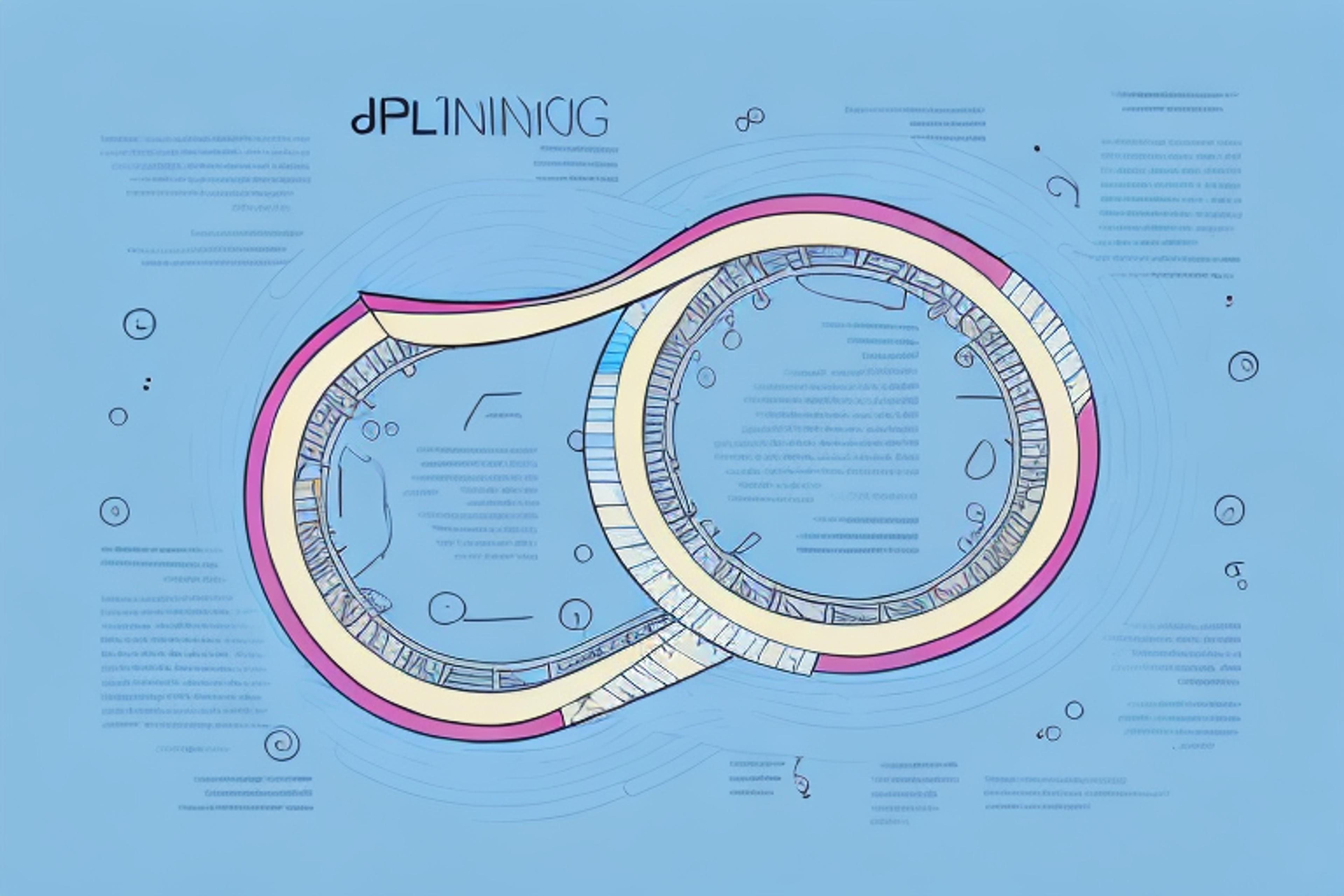Minto Pyramid Principle: What it Is and How to Use It (With Examples)
If you're an aspiring consultant, the Minto Pyramid Principle is a must-know concept.
Posted March 6, 2025

Table of Contents
If you are an aspiring consultant, you have likely come across the Minto Pyramid Principle, a powerful framework for structuring your reports and presentations. This principle is essential for consulting firms and widely applied across the business world to communicate key ideas effectively.
In this article, we will explore the Minto Pyramid, its history, principles, benefits, practical applications, real-world examples, and key points for mastery. By the end, you'll understand why this approach is indispensable in the management consulting world.
What is the Minto Pyramid Principle?
The Minto Pyramid Principle, developed by Barbara Minto, a former McKinsey consultant, provides a logical framework for communicating complex ideas. It structures information hierarchically, starting with the most important information (the main points) and supporting it with detailed evidence and data.
This pyramid structure allows readers to quickly grasp the big picture before diving into the detailed information. Organizing key facts in a logical order enhances clarity and persuasiveness in business writing and presenting ideas.
History and Origin
The Minto Pyramid Principle was born out of Barbara Minto's frustration with the way consultants at McKinsey were communicating their ideas. She noticed that strategy consultants often jumped into details without providing a clear and concise overview of their message, leading to confusion, misunderstandings, and wasted time.
To address this issue, Barbara Minto developed the Minto Pyramid Principle, which emphasizes a structured thinking process to improve written communication and PowerPoint presentations. Her solution was rooted in presenting information in a logical and hierarchical structure, focusing on mutually exclusive and collectively exhaustive points to simplify problem-solving and enhance clarity.
The principle is called a "pyramid" because it starts with a broad main idea at the top, supported by sub-ideas below it. Each sub-idea is then reinforced by specific details, creating a structured and easy-to-follow logic. This method has become a widely used communication tool in the business world, especially in management consulting firms.
The framework has been adopted by many top consulting firms and incorporated into training programs and workshops, helping professionals develop their communication skills and become more effective in their roles. It is even taught in prestigious programs, such as those at Harvard Business School, making it a cornerstone of professional development.
Barbara Minto has also written books, including The Pyramid Principle: Logic in Writing and Thinking and Pyramid Thinking: Insights into How to Succeed by Thinking Like a Consultant. These resources provide detailed guidance on applying the principle in various contexts and have become essential reading for anyone looking to improve their communication and problem-solving skills.
Understanding the Basic Principles of the Pyramid Principle
The Minto Pyramid Principle is based on four basic principles. The first principle is the "top-down" approach, which means that you should start with your main idea and work your way down to the details. The second principle is "grouping", which means that you should group related topics together to create logical sub-ideas. The third principle is "parallelism", which means that you should use consistent structure and language to make it easy for your audience to follow your message. The fourth principle is "emphasis", which means that you should emphasize the most important information to reinforce your main idea.
It is important to note that the Pyramid Principle is not just applicable to written communication, but also to verbal communication. When presenting information, it is important to follow the same principles of starting with the main idea, grouping related topics, using consistent structure and language, and emphasizing the most important information. This will help ensure that your audience understands and retains the information you are presenting.

Why the Minto Pyramid Principle is Important for Consultants
In the consulting world, the Minto Pyramid saves time and helps consultants solve problems effectively by focusing on the big picture and supporting it with data points. By using logic in writing, consultants can deliver concise, impactful reports that cater to busy executives and decision-makers.
Another reason why the Minto Pyramid Principle is important for consultants is that it helps them to structure their ideas logically and coherently. This is crucial when presenting complex information to clients or stakeholders. By using the pyramid structure, consultants can break down their ideas into smaller, more manageable pieces, making it easier for their audience to follow along and understand the key points.
Furthermore, the Minto Pyramid Principle can also help consultants to differentiate themselves from their competitors. By using this framework, consultants can demonstrate their expertise and professionalism, and show that they can deliver high-quality work that is both clear and concise. This can be a valuable asset when bidding for new projects or seeking to establish themselves as thought leaders in their field.
The Benefits of Using the Minto Pyramid Principle for Your Consulting Work
The benefits of using the Minto Pyramid Principle for your consulting career are numerous. First, it helps you to organize your thoughts and ideas, making it easier to develop a clear and concise message. Second, it helps you to present your ideas in a logical and structured way, which makes it easier for your audience to follow your message. Third, it saves you time and effort by reducing the need for extensive revisions or clarifications. Finally, it can improve your reputation as a consultant by demonstrating your expertise and professionalism.
Another benefit of using the Minto Pyramid Principle is that it can help you to identify gaps in your thinking. By breaking down your ideas into smaller, more manageable pieces, you may discover areas where you need to do more research or gather additional information. This can help you strengthen your arguments and make more informed recommendations for your clients.
Additionally, the Minto Pyramid Principle can be applied to a wide range of consulting projects, from strategy development to market research to organizational design. This versatility makes it a valuable tool for consultants working in a variety of industries and functional areas. By mastering the Minto Pyramid Principle, you can enhance your consulting skills and deliver more impactful results for your clients.

How to Apply the Pyramid Principle in Your Consulting Projects
To apply the Minto Pyramid Principle in your consulting projects, follow these steps:
- Define your key idea – Start with your main idea and write it down in a clear and concise sentence. This will be your "top line".
- Identify supporting arguments logically – Identify the sub-ideas that support your main idea. Group similar sub-ideas together to create logical categories.
- Provide detailed data to reinforce your points – Add specific details to each category to support your sub-ideas.
- Maintain a consistent structure – Use consistent structure and language throughout your message to make it easier to follow.
- Emphasize the main points to ensure clarity – Emphasize the most important information by highlighting key points or using bullet points.
Real-World Examples of the Minto Pyramid in Consulting
The Minto Pyramid Principle is a foundational tool in consulting, helping consultants convey complex ideas with clarity and impact. Each pyramid principle example below illustrates how it has been applied effectively in consulting projects:
1. Consulting for a Telecommunications Company
Scenario: A consulting team was tasked with identifying the reasons behind declining customer retention for a major telecommunications company and proposing actionable solutions.
Application of the Minto Pyramid Principle:
- Main Idea: Introduce a loyalty rewards program and improve customer service to enhance retention.
- Supporting Arguments:
- Customer Data Analysis: Over 30% of customers cited dissatisfaction with service as the main reason for switching providers.
- Market Benchmarking: Competitors with robust loyalty programs showed a 20% higher retention rate.
- Cost-Benefit Analysis: Implementing the proposed initiatives would yield a 15% increase in retention within 12 months at a minimal incremental cost.
- Details: The consultants outlined the program’s structure (tiered rewards system), recommended staff training for service quality improvements, and estimated implementation costs.
2. Strategy Development for an Automotive Manufacturer
Scenario: A leading automotive manufacturer engaged consultants to devise a strategy for expanding its electric vehicle (EV) market share.
Application of the Minto Pyramid Principle:
- Main Idea: Focus on mid-range EV models to capitalize on growing demand from middle-income consumers.
- Supporting Arguments:
- Market Trends: Demand for mid-range EVs is growing at 25% annually, compared to 10% for premium models.
- Customer Insights: Surveys showed that 65% of potential buyers prioritize affordability over luxury features.
- Competitive Positioning: The company’s production capabilities allow it to price competitively while maintaining margins.
- Details: Recommendations included launching a new model within two years, establishing partnerships for charging infrastructure, and targeted marketing campaigns.
3. Operational Efficiency for a Healthcare Organization
Scenario: A healthcare provider sought consulting support to improve operational efficiency and reduce costs.
Application of the Minto Pyramid Principle:
- Main Idea: Streamline administrative processes and adopt digital tools to reduce overhead costs by 20%.
- Supporting Arguments:
- Current State Assessment: Administrative costs accounted for 30% of overall expenses, exceeding industry benchmarks.
- Technology Impact: Automation of scheduling and billing processes reduced costs by 15% in similar organizations.
- Staff Feedback: Employees identified redundant paperwork and manual workflows as pain points.
- Details: The consultants proposed specific tools for process automation, training programs for staff, and timelines for implementation.
Common mistakes to avoid when using the Minto Pyramid Principle
One common mistake when using the Minto Pyramid Principle is overloading the main idea with too much data. This can lead to confusion and a lack of clarity. Make sure that your main idea is clear and concise, and that each sub-idea supports your main idea. Another mistake is failing to highlight key takeaways. Make sure to highlight the main takeaway and use consistent structure and language to reinforce your message.

Tips and tricks for mastering the Minto Pyramid Principle in your consulting work
To master the Minto Pyramid Principle in your consulting work, consider the following tips:
- Practice, practice, practice – The more you use the Pyramid Principle, the easier it will become.
- Get feedback – Ask for feedback from colleagues or clients to improve your message structure.
- Study successful examples – Look for examples of successful Minto Pyramid Principle implementation, and analyze how Minto suggests structuring arguments. and try to apply them to your own work.
- Be concise – Keep your message as concise as possible while still providing the necessary details. Focus on the most important information.
Comparison with Other Consulting Frameworks and Methodologies
The Minto Pyramid Principle is just one of many consulting frameworks and methodologies available. Some other popular frameworks and methodologies include SWOT analysis, Porter's Five Forces analysis, and the BCG matrix. However, the Minto Pyramid Principle is unique in its focus on clear and concise communication, and its emphasis on a logical and structured message structure. It can complement and enhance other frameworks and methodologies by providing a clear and concise overview of key ideas and messages.
Master the Minto Pyramid Principle with Expert Guidance
The Minto Pyramid Principle is an invaluable tool for consultants, especially in the business world. By mastering its principles, you can enhance your ability to develop and communicate persuasive arguments that resonate with clients and decision-makers. Whether you're creating a slide deck or solving complex problems, the Minto Pyramid ensures clarity, logic, and effectiveness in every interaction.
Master the art of structured thinking and clear communication using the Minto Pyramid Principle with expert guidance from top management consulting coaches today!
FAQs
How the Minto pyramid principle can be used effectively for persuasion?
- The Minto Pyramid Principle also makes your argument more persuasive. By stating your conclusion at the start, you frame all details and analysis around that central point. This helps your audience see the situation your way and agree with your conclusion or suggestion.
Can the Minto Pyramid Principle be used in other industries besides consulting?
- Yes, the Minto Pyramid Principle can be used in any industry where clear and concise communication is important.
Is the Minto Pyramid Principle only applicable to written communication?
- No, the Minto Pyramid Principle can be applied to both written and oral communication.
Is the Minto Pyramid Principle difficult to learn?
- No, the Minto Pyramid Principle is relatively easy to learn and can be mastered with practice.



















